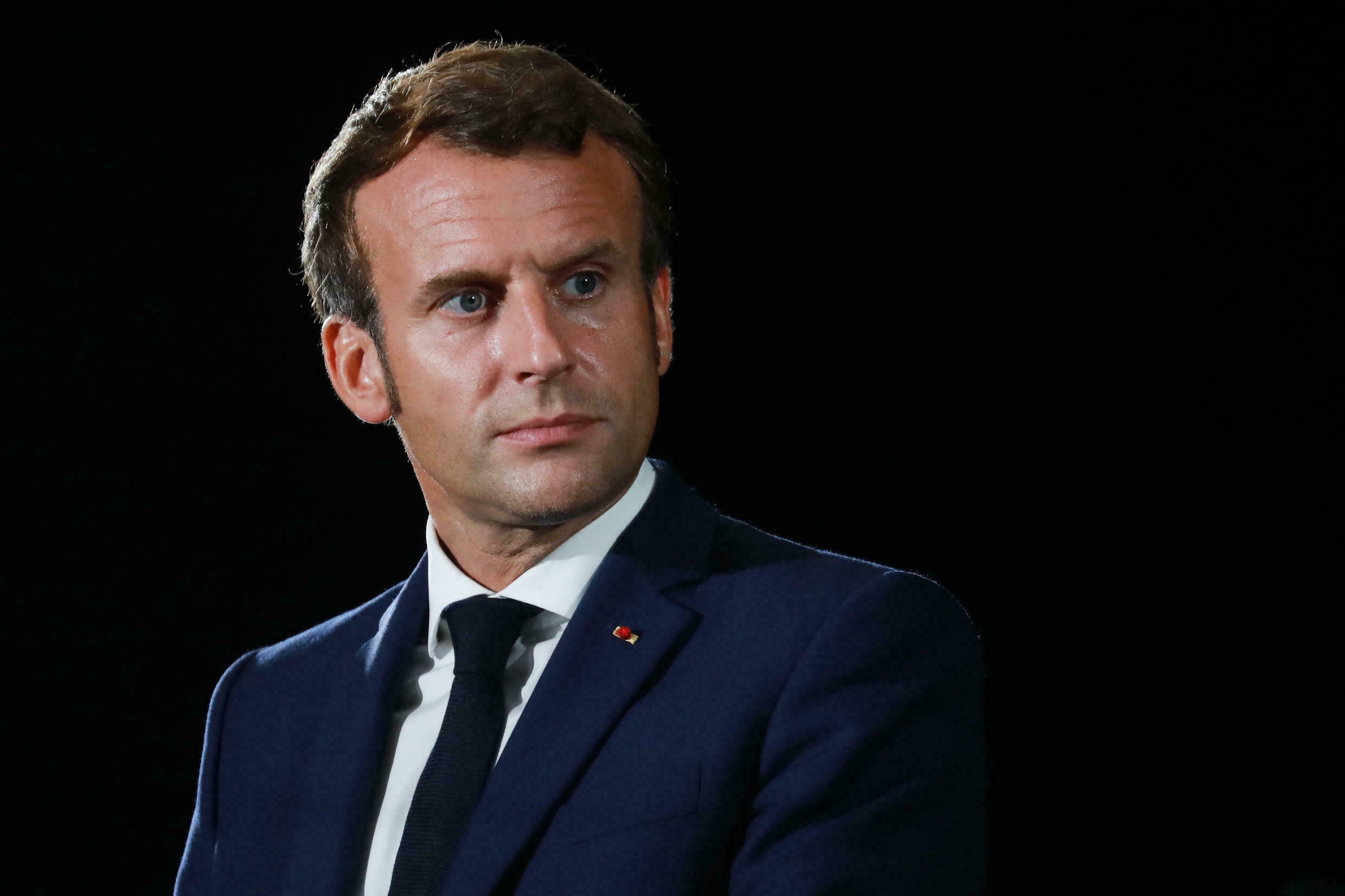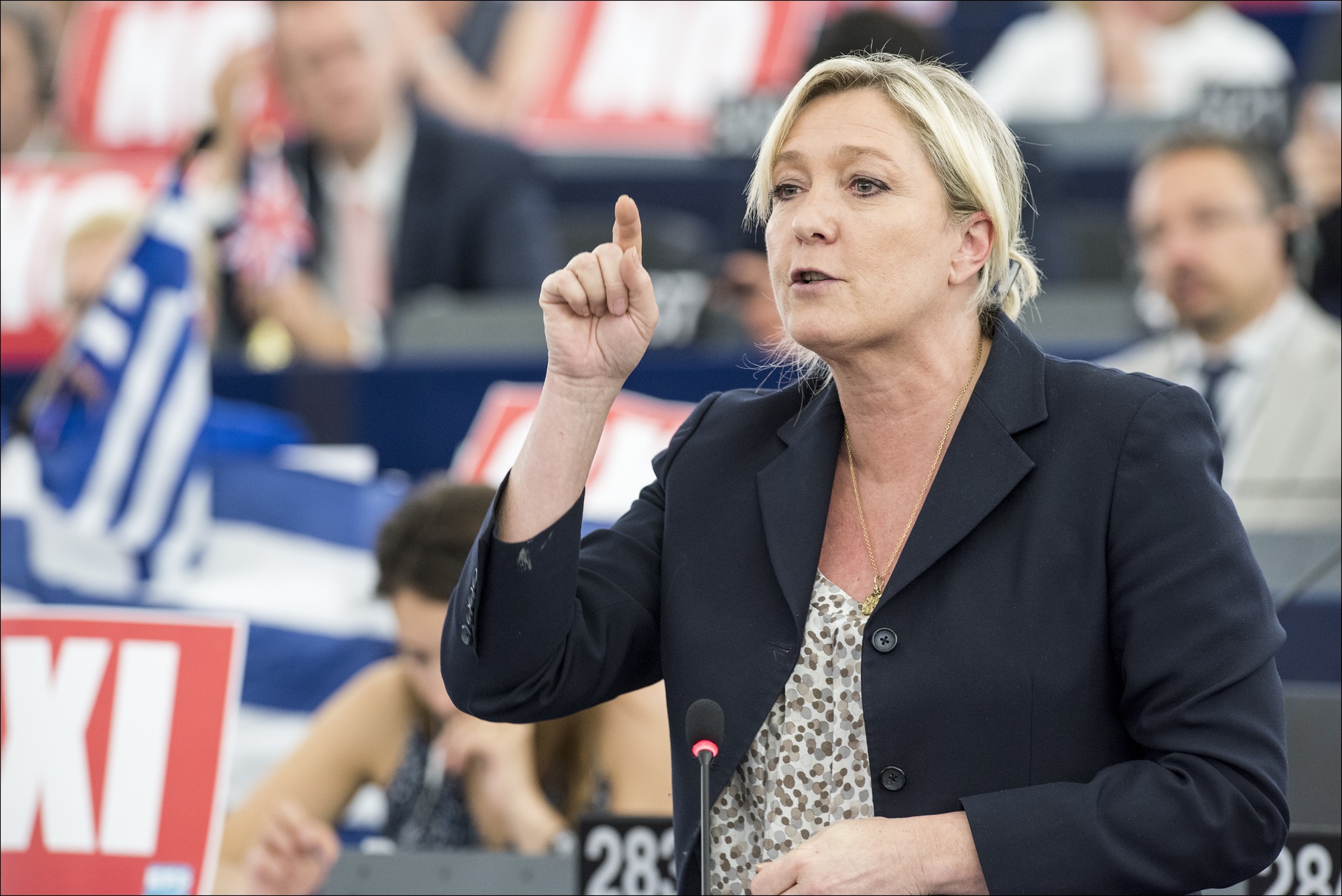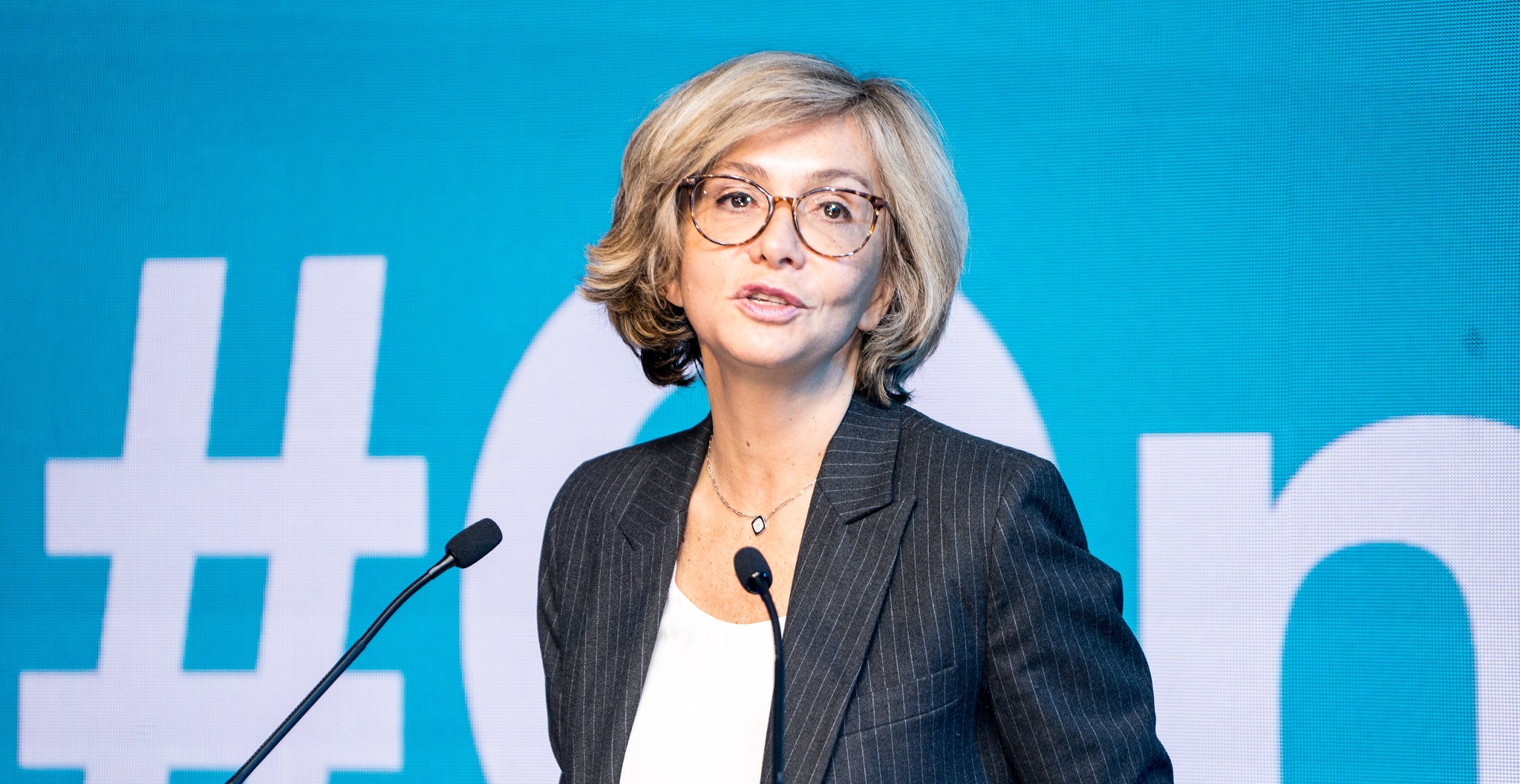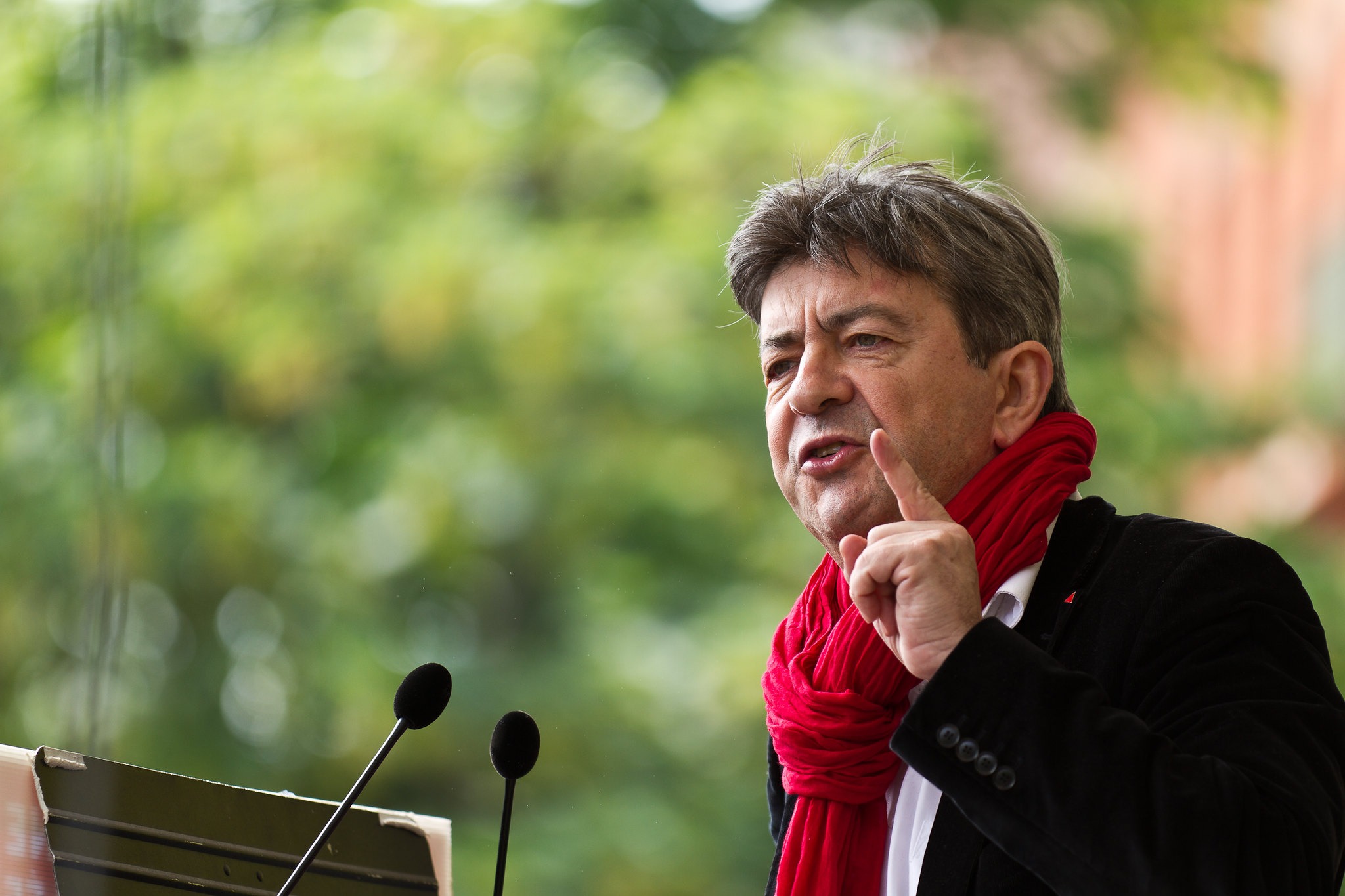The Certain Uncertainty of the French Presidential Race
By Alexandre Philips
Contributor
4/2/2022

French President Emmanuel Macron (Picture Credit: Faces Of The World)
Last September, there seemed little reason for French President Emmanuel Macron to worry about his political future. Despite France’s humiliating exit from Euro2020 and the slap in the face AUKUS represented, his popularity continued to steadily rise and his principal challenger, Marine Le Pen, of the far-right Rassemblement National party (RN), though neck and neck with him in the latest presidential first-round polls, looked destined to suffer a repeat of her calamitous 2017 run-off defeat. Woe, it seemed, to the French right, unable once again to capitalize on the conservative wave sweeping the Western world for the past half-decade. Woe, it seemed, to the French people, obliged to wait, in boredom, for the drab outcome of a drab race.
And yet…
And yet, Macron’s political advisers warned him: all is not calm on the conservative front. There had been rumors all summer of a potential candidacy from nationalist political commentator and firebrand Éric Zemmour, who had recently announced a promotional tour for his latest best-seller, France Has Not Said Her Last Word – a French tradition for any prospective presidential candidate – and whose daily shows on the 24-hour news network CNews gave him an enviable platform, in front of a ballooning audience, from which to share his views on France’s decay.
Though questioned many times on the subject, the officially undecided Zemmour refused to give a clear answer, astutely following the age-old maxim: “One comes out of ambiguity only at one’s expense.” His strategy was simple: wait and see. His prevarication helped build anticipation on his potential bid. Why make a decision? The choice was made for him. In an unprecedented move, France’s media regulator announced that Éric Zemmour should henceforth be considered a political person (i.e. no longer simply a political journalist), and that, consequently, his time on air should fall in line with its strict equity rules on political pluralism. Zemmour was compelled to resign from all of his shows and end his 25-year stint at France’s oldest newspaper. “Rejoice!” cried his detractors, “Rejoice!”
And yet…
And yet, Zemmour’s popularity soared; opinion polls gave him up to 19% of first-round votes, even overtaking Marine Le Pen as the main challenger to Emmanuel Macron. His tour de France was a resounding success and a nauseating number of articles were written about him daily. More importantly, he had managed to shift the political debate onto his preferred playing field of immigration, euro-skepticism and civilizational decline; forcing his right-wing rivals to sheepishly follow him in hopes of picking up some of his crumbs. All this without even being an official candidate.

Éric Zemmour (Picture Credit: IllianDerex)
The Napoleon admirer he claims to be should have known a winter campaign was a risky choice. A gaffe here and a misstep there were all his opponents needed to make counter-maneuvers of their own. His downslide in the polls was epitomized by a sobering, failed trip to Marseille. To save his campaign he had to act. In an attempt to drown out the Les Républicains (LR) party congress, he declared his candidacy on 30th November and, five days later, held his first political rally in front of nearly 14,000 supporters. Results: lukewarm. Despite a stellar show and a media frenzy, the surprise nomination of Valérie Pécresse (president of the Greater Paris region) as the presidential candidate of LR (the center-right party of Jacques Chirac and Nicolas Sarkozy) had a greater effect on the electorate. She leapt in the polls overnight, from 10% to 19%, even potentially beating Emmanuel Macron in the run-off. Éric Zemmour had managed to halt his downward spiral but the winds had changed, and he had to start rowing.
The French presidential election works as follows: should no candidate win an outright majority, a feat never achieved since the establishment of direct universal suffrage in 1962, two candidates with the most votes go to a run-off. The legislative election is held two months after the presidential one, but it is never a tense affair. By then, the French people usually internalize the presidential election result and always give the victor’s party a ruling majority in the Assemblée Nationale, France’s lower house. (France’s upper house, the Senat, can be overruled by a combination of the lower house and the executive in the event of a disagreement, and so is less important.)
With Emmanuel Macron polling at around 24% of the first-round votes, miles ahead of the next best candidate, the real race is for the second place in the first round of voting and a qualification to the run-off.
Zemmour has not yet been able to significantly reduce the margin between himself (13.5%) and both his main right-wing rivals, Le Pen (17%), and Pécresse (16%). Nevertheless, he is still within touching distance and his campaign has been showing signs of gathering momentum. His strategy of “the Union of the Rights” is starting to bear fruit – something, he claims, neither of his right-wing adversaries are able to do; Pécresse, because she won’t break the cordon sanitaire around the RN (understand by this a firewall between the right and the far right), and Le Pen, because she is unable to appeal to the conservative bourgeois electorate of the LR. His newly established party Reconquête! already has 85,000 members and his movement has received the support of a wide array of political actors. After recruiting Philippe de Villiers, a popular figure of the Catholic right, former president Nicolas Sarkozy’s ex-counsellor Patrick Buisson, and Jacline Mouraud, a key instigator of the yellow vest protests (the populist movement whose protests plagued the first half of Macron’s presidency), Zemmour has managed to sway several heavyweights from both the LR and the RN to his cause.
These defections have undoubtedly hurt his right-wing opponents and given his political persona some much-needed weight. The killing blow, however, still eludes him. Murmurs of Marine Le Pen’s charismatic and popular niece, Marion Maréchal, joining his team are growing ever louder. Her backing would likely be the push he needs to become the leading challenger to Emmanuel Macron. Hopes are high in the Zemmour camp, but expectations might have to be managed. After becoming, in 2012, the youngest MP since 1791, Marion Maréchal turned her back on party politics in the wake of aunt’s disastrous 2017 debacle. She has since founded a political sciences university in Lyon (ISSEP) to serve as a counter-weight to the increasingly left-leaning Parisian SciencesPo in the education of the country’s political elite. She and Zemmour have a strong friendship and much esteem for one-another but, despite being a strong proponent of the Union of the Rights, jumping back into the political quagmire with no guarantee of success might not be her best option.
Zemmour may have convinced some of the officer class to follow him; he must now convince the common soldiers to do the same if he wishes his presidential run to amount to more than an entertaining footnote. Abstentionism has been growing in France and many of his compatriots are simply uninterested in the campaigns. But the electoral geography might work in his favor.
Marine Le Pen’s star seems to have been dimming for some time. She was left humiliated after her 2017 rout by Emmanuel Macron. Her failure to garner more than 33.9% of the run-off votes, in large part due to an embarrassing televised debate, created a wave of disillusion within her ranks. Her subsequent failure to make any gains in the minor elections throughout Macron’s presidency, often snatching defeat from the jaws of victory, has made many of her supporters question if she is the right leader to get their ideas realized. Her attempt to appeal to left-leaning voters, and her strategy of softening her party’s image, have further alienated some of her traditional hard- and far-right supporters. They could find in Zemmour a new champion, close to their core values, and, like Trump, someone who’s not a career politician and who’s not afraid of being demonized.

Marine Le Pen (Picture Credit: European Parliament)
Valérie Pécresse has issues of her own. The Les Républicains party congress that saw her win the presidential nomination in December also saw the surprise emergence of Éric Ciotti, an MP for Nice whose political ideology is more similar to Zemmour’s than it is to Pécresse’s. His respectable 39% in the LR nomination’s run-off highlighted the ideological division among LR voters. Pécresse will have to appease both sides if she does not want to suffer an early defeat. Her homeland is the centre-right and, after leaving LR in 2019 because of the hard-right path it was following, and only returning for the party nomination, convincing the hardliners in the party to follow her into battle could prove difficult. Although Ciotti has so far refused to join Zemmour and has given his full support to his party’s nominee, his supporters might not be so loyal to her. Pécresse is seen, for the moment, as the only candidate on the French right able to beat Emmanuel Macron, and so could benefit from the vote utile – a ballot cast not in favor of the candidate you like the most, but in favor of the one you see as most likely to win. However, should Zemmour start overtaking her in the polls, some will be tempted to cross over.

Valérie Pécresse (Picture Credit: Jacques Paquier)
Persuading the two distinct voter blocs to abandon their respective sides and join forces under his banner will be tricky for Zemmour. Some see him as an unserious upstart only seeking to boost his book sales, others as a nuisance come to further divide the right. He insists they are kin split apart by an artificial wall. His honed, spirited style – second only to the slick rhetoric of Jean-Luc Mélenchon of La France Insoumise (Unsubmissive France – hard left) – leaves few indifferent, and it will be his strongest asset when facing his opponents in the televised debates. By then, though, it might be a case of too little, too late.
With just under 10 weeks to go before the first round (10th April 2022), it is all to play for in the conservative camp. The cumulative 45% predicted first round vote-share of their side suggests the contender to Emmanuel Macron’s second term will come from their half of the political spectrum.
And yet…
And yet, by bringing both Marine Le Pen’s and Valérie Pécresse’s predicted vote-share into the mid-teens, Éric Zemmour’s candidacy has lowered the entry bar to the second round and unwittingly left the door ajar for the left.
Zemmour’s candidacy has lowered the entry bar to the second round and unwittingly left the door ajar for the left.
The left has had a pitiful electoral season. It has been mostly absent from the political debate and is still re-constituting itself after the traumatic collapse of the Socialist Party (PS) in 2017. It totals around 30% of first-round votes in the latest polls but is split between seven candidates, none wishing to step aside for the other. Leading candidate Jean-Luc Mélenchon (10%) of La France Insoumise (LFI) is looking to repeat his impressive 2017 score of 19.58%; Yannick Jadot (6%) of Europe-Écologie-Les-Verts (EELV – the Green party) sees himself, and his party, as the new force of the French left thanks to successes in both the 2019 municipal and 2021 regional elections; Christiane Taubira of Walwari (5%), newcomer and former justice minister under François Hollande, believes she can pull off a Zemmour; Paris mayor Anne Hidalgo (3%) believes she is representing the institutional PS; and the three far-left candidates, Nathalie Arthaud of Lutte Ouvrière (Workers’ Struggle) (0.5%), Philippe Poutou of the Nouveau Parti Anticapitaliste (New Anticapitalist Party) (0.5%), and Fabien Roussel of the Parti Communiste Français (3%), who believe the proletarian Revolution must never be abandoned.

Jean-Luc Mélenchon (Picture Credit: Pierre-Selim)
The French left’s traditional voting blocs of the lower socio-economic classes and the liberal bourgeoisie have fled respectively into the arms of Marine Le Pen and Emmanuel Macron. Jean-Luc Mélenchon’s radical brand of progressive socialism (the right call it Islamo-leftism), though very popular with the suburbs and the immigrant-descended population, is too unattractive to the general public to get him into power. The PS and EELV, have forgone the universalist and staunchly secularist ideals that were the backbone of the mainstream left since the French Revolution, to embrace woke and intersectional ideology. After so many years of ideological hegemony, masterfully reducing the right into defining itself solely as “non-left,” the French left is now struggling to find its feet.
A grassroots initiative aiming to select a single candidate with a common manifesto for a unified left, the Primaire Populaire (People’s Primary), was held last week. LFI and EELV declared that their candidates would not participate. Anne Hidalgo (PS), perhaps searching for an honorable end to her stillborn campaign, was first to favor it before backtracking when stories of bias and mismanagement within the primary’s organization emerged in the press. All three were on the ballot regardless, along with Christiane Taubira and a few straw candidates. To nobody’s surprise Christiane Taubira came out on top but, with a meagre 467,000 registered online voters participating in it, strong criticism against it and the refusal of its most serious runners to recognize its legitimacy, the Primaire Populaire is expected to have all the political weight of mist.
In the absence of a clear leader behind which to unite, the French left looks set to be a bystander in this year’s election. 27 years have passed since the François Mitterand era, 10 since the fluke election of François Hollande, and the left is still searching for its new helmsman. It’s unlikely one will emerge in the foreseeable future.
And yet…
And yet, should Emmanuel Macron fail to win a second term, his centrist La République En Marche! might not survive the defeat. The French president is neither an ideologue or a party-politician at heart. If he loses the election, it’s hard to imagine him continuing a political career as head of an opposition. His party, which was created for him and by him, would split. The right wing of En Marche! would inevitably take part in a three-way merger with Horizons and Agir; political movements founded, respectively, by Macron’s former prime minister and Le Havre mayor, Édouard Philippe, and his current minister delegate for Foreign Trade, Franck Riester. The left wing of En Marche! would therefore have to seek pastures new, perhaps even breathing new life into a tired French left.
Should Emmanuel Macron fail to win a second term, his centrist La République En Marche! might not survive the defeat.
From his palace overlooking the Champs-Élysées, Emmanuel Macron has so far remained above the melee. The polls consistently put him at around 24% of first-round votes and none of his would-be challengers appear to pose a real threat to his re-election in a runoff, save for LR’s Valérie Pécresse in a couple of polls – statistical error, surely. That is not to say he isn’t paying close attention to the developments on the ground. His hasty backpedalling after flying the EU flag, without the usual French one, under the Arc de Triomphe to celebrate the start of France’s presidency of the EU Council, is a prime example. A non-candidate Macron would have stood firm.
He has also managed to take back control of the political agenda by making the COVID-19 pandemic the main subject of discussion; thereby forcing his adversaries to take divisive stances on a sensitive issue and diverting attention away from his record on immigration and social reform. This has backfired somewhat, as his “pissing off the unvaccinated” outburst earlier this month, followed by his government’s U-turn on the unpopular COVID measures it had just put in place, have taken a toll on his ratings. Nonetheless, with some two months to go before the vote, Emmanuel Macron has time aplenty to distribute approval-boosting, pre-electoral gifts.
Macron’s rocky first term in office has not shaken his solid core of support. His victory seems all but guaranteed. With a rudderless left and a divided right as his opponents, Emmanuel Macron has more than enough room to maneuver. He can wait until the very last minute to officially throw his presidential hat into the ring. All the signs are pointing to him wearing it again come 24th April.
And yet…
